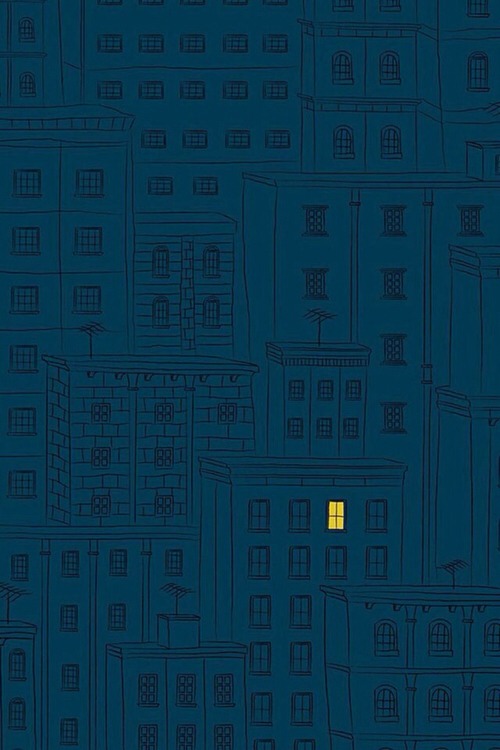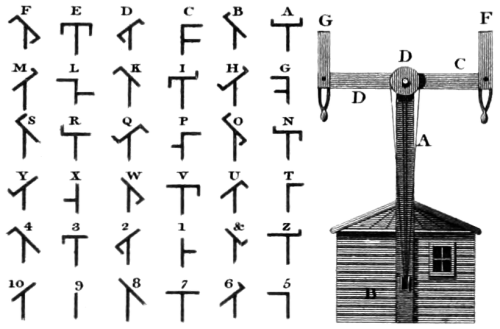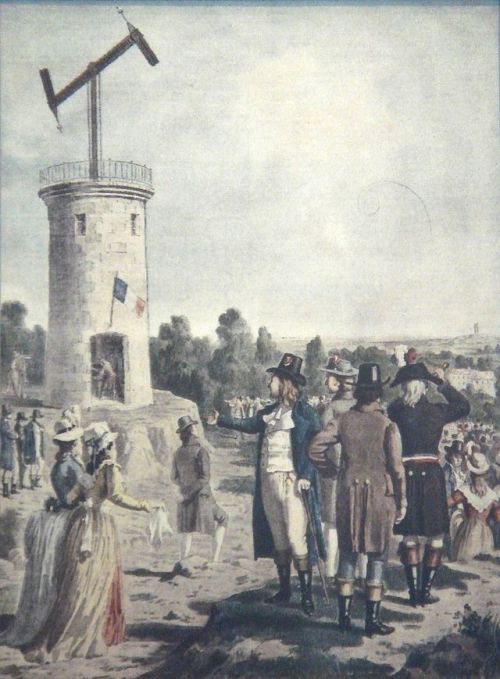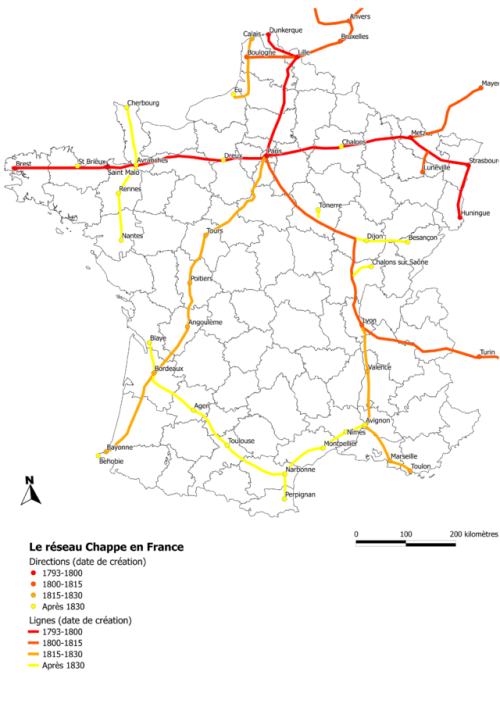“I Lampioni Illuminavano La Strada Di Un Giallo Acceso E Creavano Contrasto Con I Palazzi Dalle Finestre
“I lampioni illuminavano la strada di un giallo acceso e creavano contrasto con i palazzi dalle finestre buie: solo un vetro di un palazzone alto lasciava trasparire una fievole luce bianca e la sagoma di una giovane donna, la mia sagoma.
Dopo aver scrutato quel panorama desolante dalla finestra, tornai a sdraiarmi sul letto, guardandomi intorno: il blu dominava nella piccola stanza da letto; pareti, la lampada sulla scrivania, il piumone caldo, il quadro sopra al letto.. Era tutto blu di tonalità e sfumature diverse; quel colore mi apparteneva: probabilmente, se mi avessero aperto in due, avrebbero scoperto perfino cuore, polmoni e fegato blu oceano o forse avrebbero trovato solo la schiuma bianca delle onde infrante con potenza sugli scogli, l'odore di salsedine così forte da bruciare lungo le vie nasali, il vento freddo che fa chiudere gli occhi e spettina i capelli e la possente forza e la pericolosa profondità dell'oceano in tempesta, la stessa burrasca che, rinchiusa dal corpo, spingeva per uscire, mandare alla deriva ed inondare qualsiasi cosa mi avesse circondata in quel momento, perchè così mi sentivo, così mi sento: uno tzunami di emozioni contrastanti, un uragano di pensieri, un leone abituato alla Savana e costretto nella gabbia di uno zoo.”

More Posts from Cacciatricediartemide and Others

Collab of my OC Vasil I did with my friend @inkenstabell Go check their stuff out!
The moment you finish reading this sentence, the version of you that began reading will have entered the past.

Holy shit,this would be a fucking nightmare

oh shit, it's 3/21/23, 32123, palindrome day










She’s Artemis. My goddess.






Napoleonic France’s wireless communication network— The Semaphore Line
Before the telegraph fast traveling communication was quite difficult, especially over long distances. The most common way of communicating over long distances was by courier, such as a fast pony or ship. This method could take weeks, months, or perhaps even years. Some ingenious peoples had the idea of using smoke signals, torches, and flag signals for faster communication. In 1792 a Frenchman named Claude Chappe invented the Semaphore Telegraph. The Semaphore Telegraph consisted of a series of towers placed over a certain distance which would communicate to each other visual coded messages. Each semaphore tower had a fixture with black movable arms which could be rotated and moved to symbolize a certain letter in the alphabet, number or symbol. Altogether, the two arms and crossbar could create up to 196 symbols. Chappe chose this system over signal fires, lamps, flags, and mirrors because he determined through experimentation that it was the easiest to see over long distances. In each tower, a man would watch the closest nearby tower through a telescope. When one tower transmitted a message, the adjoining tower would do the same, communicating the message down the line until it arrived from point A to point B. The Semaphore Line used encoded messages as well, and each Semaphore tower was issued a secret codebook.
Claude Chappe’s first line streched from Strasbourg to Paris with 50 Semaphore towers relaying messages. Originally the line was used to communicate commodities prices for investors in Strasbourg. However the French Consul/Future Emperor Napoleon Bonaparte saw value in the system as tool for the French Government and military. He sponsored Chappe to build a system of Semphore lines in order to send military messages to the frontlines in Germany, Belgium, the Netherlands, and Italy. After Napoleon’s fall, construction of Semaphore lines continued and gradually expanded. By the mid 19th century, a network of lines connecting Paris with most major French cities had been built, with at network of 556 stations stretching over 3,000 miles. Other nations such as the UK, Sweden, Prussia, Spain, Canada, and United States adopted similar systems. By 1850, use of the Semphore line waned as telegraph technology became more common.
-
 amourcaroliiina reblogged this · 10 months ago
amourcaroliiina reblogged this · 10 months ago -
 london-fogs reblogged this · 10 months ago
london-fogs reblogged this · 10 months ago -
 angelic-girl liked this · 10 months ago
angelic-girl liked this · 10 months ago -
 mohammaddark liked this · 10 months ago
mohammaddark liked this · 10 months ago -
 steviekay101 liked this · 10 months ago
steviekay101 liked this · 10 months ago -
 lonely--crow liked this · 10 months ago
lonely--crow liked this · 10 months ago -
 tired-but-aw4ke reblogged this · 10 months ago
tired-but-aw4ke reblogged this · 10 months ago -
 umgarotoapaixonado liked this · 10 months ago
umgarotoapaixonado liked this · 10 months ago -
 meninosememocao reblogged this · 10 months ago
meninosememocao reblogged this · 10 months ago -
 meninosememocao liked this · 10 months ago
meninosememocao liked this · 10 months ago -
 4lonekitty liked this · 10 months ago
4lonekitty liked this · 10 months ago -
 anythingexcepthopeless reblogged this · 10 months ago
anythingexcepthopeless reblogged this · 10 months ago -
 moonotto liked this · 10 months ago
moonotto liked this · 10 months ago -
 masawi reblogged this · 10 months ago
masawi reblogged this · 10 months ago -
 gumincinorbe liked this · 1 year ago
gumincinorbe liked this · 1 year ago -
 darlinghaiden liked this · 1 year ago
darlinghaiden liked this · 1 year ago -
 lx34e reblogged this · 2 years ago
lx34e reblogged this · 2 years ago -
 azulegris liked this · 2 years ago
azulegris liked this · 2 years ago -
 evysian-mania reblogged this · 2 years ago
evysian-mania reblogged this · 2 years ago -
 evysian-mania liked this · 2 years ago
evysian-mania liked this · 2 years ago -
 staakenau liked this · 2 years ago
staakenau liked this · 2 years ago -
 unsociablehappygirl liked this · 2 years ago
unsociablehappygirl liked this · 2 years ago -
 blue-fruit-snack liked this · 2 years ago
blue-fruit-snack liked this · 2 years ago -
 creakingsweetbaytree liked this · 2 years ago
creakingsweetbaytree liked this · 2 years ago -
 neobirblog reblogged this · 3 years ago
neobirblog reblogged this · 3 years ago -
 neobirblog liked this · 3 years ago
neobirblog liked this · 3 years ago -
 sok-od-jabuke reblogged this · 3 years ago
sok-od-jabuke reblogged this · 3 years ago -
 kholkate reblogged this · 3 years ago
kholkate reblogged this · 3 years ago -
 kholkate liked this · 3 years ago
kholkate liked this · 3 years ago -
 thereisacorner liked this · 3 years ago
thereisacorner liked this · 3 years ago -
 jaquestarbuck liked this · 3 years ago
jaquestarbuck liked this · 3 years ago -
 misterio-secreto69 liked this · 3 years ago
misterio-secreto69 liked this · 3 years ago
